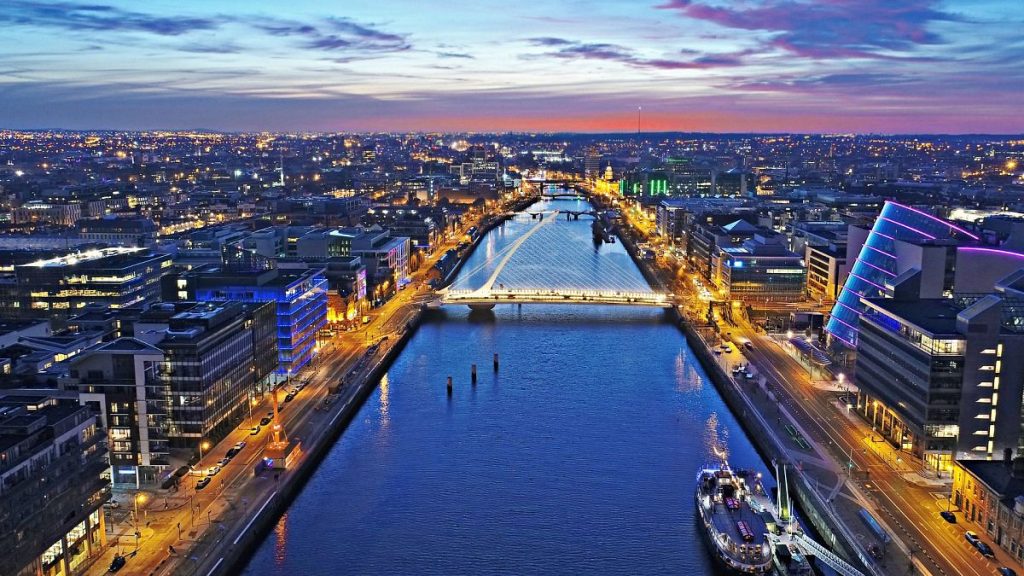Ireland’s economic growth is poised for a slowdown in the coming years, transitioning from a period of robust expansion to a more moderate pace. The Irish Business and Employers Confederation (IBEC) projects domestic demand growth of 3% in 2024, tapering to 2.7% by 2026. Similarly, employment growth is expected to decelerate to 2.4% this year and further to 2% in 2026. While GDP is anticipated to reach 1.7% in 2025 and 2.1% in 2026, IBEC cautions against overreliance on this metric due to the distorting influence of multinational profits on Ireland’s overall economic picture. This cooling trend is attributed to a confluence of factors, both international and domestic, creating a complex economic landscape.
Among the key international challenges is the economic turbulence experienced by Ireland’s major trading partners, particularly within Europe. The continent grapples with adapting its business models to the new realities of trade and elevated energy costs, impacting its overall economic performance and consequently affecting Ireland’s export-oriented economy. Beyond Europe, the new US administration’s trade policies present further uncertainties. The potential for increased tariffs and a shift in trade priorities could significantly impact Irish exports to the US, a crucial market for Irish businesses. The interplay between domestic and international trade policy goals within the US will be a critical determinant of Ireland’s future economic prospects.
The return of Donald Trump to the presidency introduces significant economic uncertainty for Ireland. His proposed protectionist trade policies, including tariffs of 10-20% on all imported goods and even higher levies on Chinese goods, could disrupt global trade flows and negatively impact Irish exports. While Trump argues that tariffs will protect American industries and boost the US economy, economists warn of potential inflationary pressures and retaliatory measures from other countries. Furthermore, Trump’s proposed tax cuts, while potentially stimulating consumer demand, could also exacerbate inflation, leading to higher interest rates and increased national debt. The resulting strengthening of the dollar could make imports more expensive for European consumers, including those in Ireland, while simultaneously making Irish goods more competitive in the US market. This complex interplay of factors presents both challenges and opportunities for the Irish economy.
Despite the global headwinds, IBEC highlights domestic challenges as the primary obstacles to Ireland’s continued growth. Critical infrastructural bottlenecks in housing, electricity, water, and transport are stifling business expansion and hindering overall economic progress. These limitations constrain businesses’ ability to operate efficiently and expand their operations, posing a significant impediment to long-term economic growth. Addressing these infrastructural deficiencies is crucial for unlocking Ireland’s full economic potential and ensuring sustained growth in the future.
IBEC further criticizes the Irish government’s 2025 budget, labeling the measures as “untargeted” and arguing that funds were allocated to households not in genuine need. They advocate for redirecting these resources towards long-term infrastructure projects to address the aforementioned bottlenecks and lay the foundation for sustainable economic development. Strategic investment in infrastructure is seen as a more effective use of public funds, fostering long-term growth and enhancing the country’s overall competitiveness.
Despite the challenges, IBEC maintains a cautiously optimistic outlook for Ireland’s economic future. The country’s skilled workforce and stable political environment are viewed as key strengths that can help navigate the current economic uncertainties and maintain competitiveness. By addressing the domestic challenges, particularly the infrastructural deficits and refining budgetary strategies, Ireland can position itself for continued growth and prosperity, even in the face of global economic headwinds. The focus on long-term strategic investments and maximizing the existing strengths of the Irish economy will be crucial for weathering the current economic uncertainties and achieving sustainable growth.














